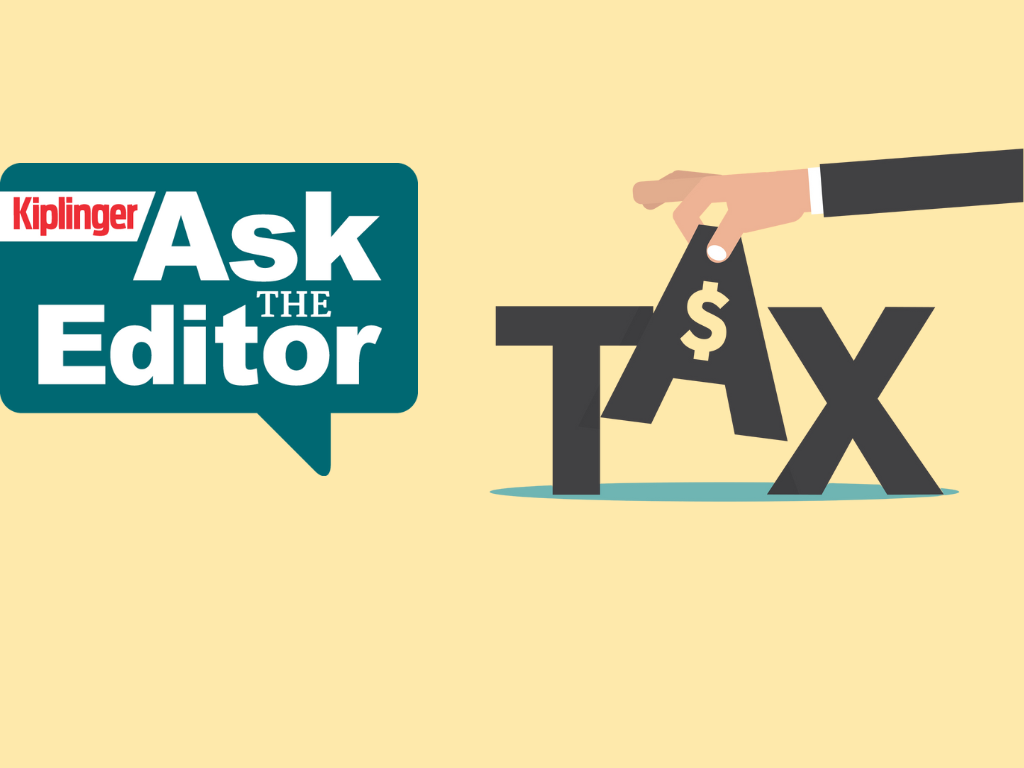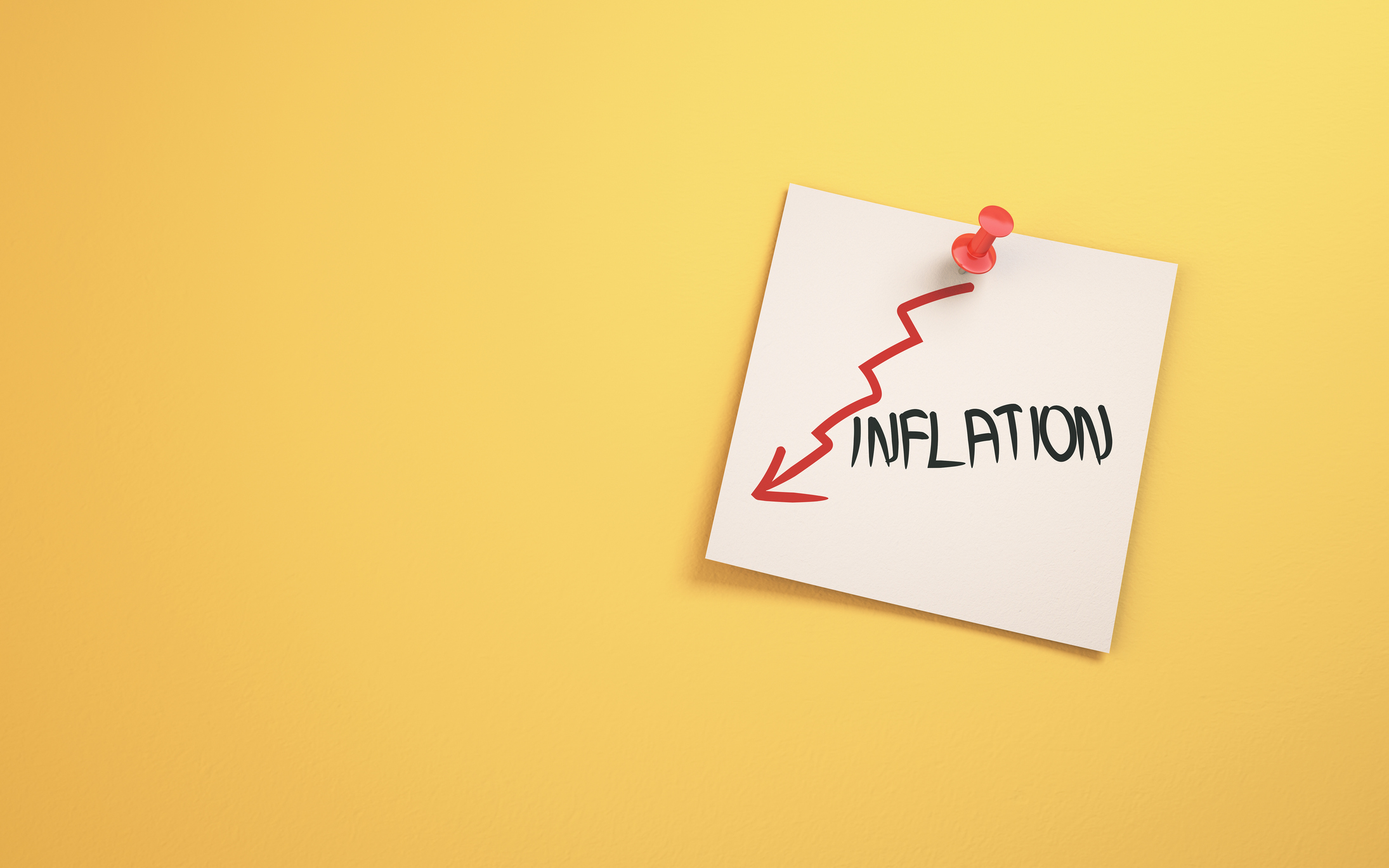Two Alternatives to Required Minimum Distributions (RMDs)
If the thought of paying taxes on your RMDs is stressing you out, consider these two options to save on taxes and anxiety.


Profit and prosper with the best of Kiplinger's advice on investing, taxes, retirement, personal finance and much more. Delivered daily. Enter your email in the box and click Sign Me Up.
You are now subscribed
Your newsletter sign-up was successful
Want to add more newsletters?

Delivered daily
Kiplinger Today
Profit and prosper with the best of Kiplinger's advice on investing, taxes, retirement, personal finance and much more delivered daily. Smart money moves start here.

Sent five days a week
Kiplinger A Step Ahead
Get practical help to make better financial decisions in your everyday life, from spending to savings on top deals.

Delivered daily
Kiplinger Closing Bell
Get today's biggest financial and investing headlines delivered to your inbox every day the U.S. stock market is open.

Sent twice a week
Kiplinger Adviser Intel
Financial pros across the country share best practices and fresh tactics to preserve and grow your wealth.

Delivered weekly
Kiplinger Tax Tips
Trim your federal and state tax bills with practical tax-planning and tax-cutting strategies.

Sent twice a week
Kiplinger Retirement Tips
Your twice-a-week guide to planning and enjoying a financially secure and richly rewarding retirement

Sent bimonthly.
Kiplinger Adviser Angle
Insights for advisers, wealth managers and other financial professionals.

Sent twice a week
Kiplinger Investing Weekly
Your twice-a-week roundup of promising stocks, funds, companies and industries you should consider, ones you should avoid, and why.

Sent weekly for six weeks
Kiplinger Invest for Retirement
Your step-by-step six-part series on how to invest for retirement, from devising a successful strategy to exactly which investments to choose.
Here’s my simple explanation of required minimum distributions (RMDs): At age 73 or 75 (if you were born in 1960 or after), Uncle Sam knocks on your door and asks you to pay taxes on your tax-deferred investments.
You’ve gone perhaps years without paying taxes on these accounts, and he’s $37 trillion in debt. In more technical terms, an RMD is when you take out a specific percentage (based on the IRS life expectancy table) from your tax-deferred investments (401(k)s, IRAs, etc.) and pay taxes on it.
The older you get, the more that percentage increases. Most retirees not only see an increase in that percentage, but they also see their investments grow. This combination may cause you to take out significantly more in the future, which can create issues when it comes to paying taxes.
From just $107.88 $24.99 for Kiplinger Personal Finance
Become a smarter, better informed investor. Subscribe from just $107.88 $24.99, plus get up to 4 Special Issues

Sign up for Kiplinger’s Free Newsletters
Profit and prosper with the best of expert advice on investing, taxes, retirement, personal finance and more - straight to your e-mail.
Profit and prosper with the best of expert advice - straight to your e-mail.
Kiplinger's Adviser Intel, formerly known as Building Wealth, is a curated network of trusted financial professionals who share expert insights on wealth building and preservation. Contributors, including fiduciary financial planners, wealth managers, CEOs and attorneys, provide actionable advice about retirement planning, estate planning, tax strategies and more. Experts are invited to contribute and do not pay to be included, so you can trust their advice is honest and valuable.
It could push you into a higher tax bracket, cause Social Security to be more taxable, raise your Medicare premiums and cause capital gains to be taxable or more taxable.
Now, what if you don’t want to take your RMD? Can you just pass on it? You do not want to do this, as the penalty is a 25% tax.
I know not everyone wants to take out their RMD, but this is something you don’t want to miss. Luckily, there are a few ways to make RMDs a little less troublesome.
Strategy No. 1: Roth conversions
You could deal with this now by reducing your RMDs in the future. This could involve taking money from your tax-deferred investments before age 73 or 75 or utilizing a Roth conversion strategy.
A Roth conversion is when you take money from a tax-deferred investment and move it to a Roth IRA.
With this strategy, you have to pay taxes when you move the money, but it can make a lot of sense while tax rates are low and before that investment has the opportunity to grow more.
When your money is in a Roth IRA, you are not required to take out RMDs, which allows your money to grow tax-free.
Also, all the money you take from this account will be tax-free and not count as income, as long as you are 59½ or older and have had a Roth open for at least five years.
Please note that if you’re taking RMDs, you can still do a Roth conversion, but you have to take your RMD out first before you do a conversion.
For example, if you are required to take $10,000 from your IRA, but you want to do a $5,000 Roth conversion, you would take out $10,000 first (which cannot be converted). You would then convert $5,000 on top of that, which means your total taxable withdrawal amount would be $15,000.
Strategy 2: Charitable donations
For my charitable clients who don’t need to live off their RMDs, we recommend they gift their RMD or a portion to a charity.
This strategy is tax-free for you and the charity. It’s called a qualified charitable distribution (QCD).To make a QCD, send the money straight to the charity so it doesn’t get counted as income.
I remember one of my clients was giving $10,000 to his church every year and was in the 22% tax bracket. He would take out about $12,200 from his IRA each year and then give it to the charity. It did not go straight to the charity.
In doing this, he gave only about $10,000 after taxes. He came to me, wondering what he should do with his RMD since he didn’t need the full amount.
What a perfect opportunity. I told him to do a QCD and give the money straight to his church. Doing so saved him about $2,200 that year! That is the power of a QCD if you are charitable-minded.
Don't pay more than you need to
So, next time Uncle Sam comes knocking on your door, you will be a little more educated and hopefully have a better plan to keep your hard-earned money instead of tipping Uncle Sam and paying more than your fair share.
And don’t forget that a financial professional you trust can be incredibly helpful in this situation.
Investment Advisory Services and Insurance Services are offered through Peak Retirement Planning, Inc., a Registered Investment Adviser.
Related Content
- Do You Have the Five Pillars of Retirement Planning in Place?
- Will You Pay Taxes on Your Social Security Benefits?
- Here's Why You Shouldn't Put All Your Money Into Roth IRAs
- You're 62 Years Old With $1 Million Saved: Can You Retire?
- How Much Do You Need for a Comfortable Retirement?
Profit and prosper with the best of Kiplinger's advice on investing, taxes, retirement, personal finance and much more. Delivered daily. Enter your email in the box and click Sign Me Up.

Joe F. Schmitz Jr., CFP®, ChFC®, CKA®, is the founder and CEO of Peak Retirement Planning, Inc., which was named the No. 1 fastest-growing private company in Columbus, Ohio, by Inc. 5000 in 2025. His firm focuses on serving those in the 2% Club by providing the 5 Pillars of Pension Planning. Known as a thought leader in the industry, he is featured in TV news segments and has written three bestselling books: I Hate Taxes (request a free copy), Midwestern Millionaire (request a free copy) and The 2% Club (request a free copy).
Investment Advisory Services and Insurance Services are offered through Peak Retirement Planning, Inc., a Securities and Exchange Commission registered investment adviser able to conduct advisory services where it is registered, exempt or excluded from registration.
-
 Small Caps Step Up, Tech Is Still a Drag: Stock Market Today
Small Caps Step Up, Tech Is Still a Drag: Stock Market TodayEarly strength gave way to AI skepticism again as a volatile trading week ended on another mixed note.
-
 Money Questions Couples Should Ask Before Combining Finances or Planning a Future Together
Money Questions Couples Should Ask Before Combining Finances or Planning a Future TogetherHonest financial conversations can reduce stress, strengthen trust and help couples align long-term goals.
-
 Ask the Tax Editor: IRAs
Ask the Tax Editor: IRAsAsk the Editor In this week's Ask the Editor Q&A, Joy Taylor answers questions on IRAs
-
 Small Caps Step Up, Tech Is Still a Drag: Stock Market Today
Small Caps Step Up, Tech Is Still a Drag: Stock Market TodayEarly strength gave way to AI skepticism again as a volatile trading week ended on another mixed note.
-
 4 Pro Tips for Successfully Scaling the Medicare Mountain
4 Pro Tips for Successfully Scaling the Medicare MountainAttempting to conquer Medicare without a plan is risky. The safest route requires a thorough understanding of your options and never leaves decisions to chance.
-
 For More Flexible Giving, Consider Combining a Charitable Remainder Trust With a Donor-Advised Fund
For More Flexible Giving, Consider Combining a Charitable Remainder Trust With a Donor-Advised FundIf a charitable remainder trust puts too many constraints on your family's charitable giving, consider combining it with a donor-advised fund for more control.
-
 The Illinois 'Cliff Tax': A Single Dollar Could Cost Families Hundreds of Thousands
The Illinois 'Cliff Tax': A Single Dollar Could Cost Families Hundreds of ThousandsIllinois' estate tax "threshold" (rather than "exemption") can surprise families, but proactive planning can help preserve more for heirs and charitable causes.
-
 AI Unwind Takes 2% Off the Nasdaq: Stock Market Today
AI Unwind Takes 2% Off the Nasdaq: Stock Market TodayMarkets are paying more and more attention to hyperscalers' plans to spend more and more money on artificial intelligence.
-
 Big Change Coming to the Federal Reserve
Big Change Coming to the Federal ReserveThe Lette A new chairman of the Federal Reserve has been named. What will this mean for the economy?
-
 January CPI Report Shows Inflation Slowed. Here's What That Means for Rate Cuts
January CPI Report Shows Inflation Slowed. Here's What That Means for Rate CutsThe January CPI report came in lighter than expected. Here's what economists say that means for the Federal Reserve and interest rates.
-
 These Thoughtful Retirement Planning Steps Help Protect the Life You Want in Retirement
These Thoughtful Retirement Planning Steps Help Protect the Life You Want in RetirementThis kind of planning focuses on the intentional design of your estate, philanthropy and long-term care protection.